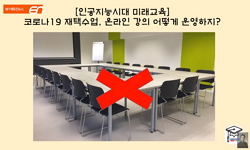본 연구는 코로나19 팬데믹 이후 한국과 일본의 여가산업 변화와 트렌드를 비교 분석하였다. 특히, 양국의 여가백서를 중심으로 여가산업과 정책이 어떻게 변화해 왔는지를 파악하였다. 한...
http://chineseinput.net/에서 pinyin(병음)방식으로 중국어를 변환할 수 있습니다.
변환된 중국어를 복사하여 사용하시면 됩니다.
- 中文 을 입력하시려면 zhongwen을 입력하시고 space를누르시면됩니다.
- 北京 을 입력하시려면 beijing을 입력하시고 space를 누르시면 됩니다.

코로나19 이후 한국과 일본의 여가산업 트렌드 비교분석: 2023년 한·일 여가백서를 중심으로 = Comparative Analysis of Leisure Industry Trends in South Korea and Japan After COVID-19: Focusing on the 2023 South Korea and Japan Leisure White Papers
한글로보기부가정보
국문 초록 (Abstract)
본 연구는 코로나19 팬데믹 이후 한국과 일본의 여가산업 변화와 트렌드를 비교 분석하였다. 특히, 양국의 여가백서를 중심으로 여가산업과 정책이 어떻게 변화해 왔는지를 파악하였다. 한국은 디지털화와 개인화된 여가 활동의 확대, 젊은 세대 중심의 스포츠와 취미활동 증가가 두드러졌다. 또한, 짧은 일정의 자주 떠나는 여행과 자연 친화적 활동이 특징적이었다. 반면, 일본은 리벤지 소비와 고급화된 여행상품, 체험형 콘텐츠 강화가 주요한 변화로 나타났다. 양국의 여가산업 트렌드 비교분석 결과, 양국 모두 디지털화와 자연 기반의 여가 활동이 중요했으며 이는 지속 가능한 관광산업 모델개발과 지역 소도시 관광 활성화의 필요성을 강조하였다. 또한, 전통과 현대를 아우르는 여가산업의 융합, 고령화 사회를 고려한 산업 전략이 중요함을 시사한다. 본 연구는 한국과 일본의 여가산업이 문화적, 사회적, 경제적 가치를 창출하는 중요한 요소임을 보여주며, 향후 포용적 여가정책의 필요성을 강조한다.
다국어 초록 (Multilingual Abstract)
In contrast, Japan saw significant changes marked by revenge consumption, the enhancement of luxury travel products, and the strengthening of experiential content. The comparison and analysis of the leisure industry trends in both countries revealed that digitalization and nature-based leisure activities were important in both South Korea and Japan. This highlighted the need for the development of sustainable tourism industry models and the revitalization of tourism in small local cities. Additionally, it suggests the importance of integrating traditional and modern leisure industries, as well as developing industry strategies that take into account the aging society. This study demonstrates that the leisure industries of South Korea and Japan are important factors in creating cultural, social, and economic value, and emphasizes the need for inclusive leisure policies in the future.
This study compared and analyzed the changes and trends in the leisure industries of South Korea and Japan following the COVID-19 pandemic. In particular, the study examined how the leisure industry and policies have changed by focusing on the leisure...
This study compared and analyzed the changes and trends in the leisure industries of South Korea and Japan following the COVID-19 pandemic. In particular, the study examined how the leisure industry and policies have changed by focusing on the leisure white papers of both countries. In South Korea, the expansion of digitalization and personalized leisure activities, along with an increase in sports and hobby activities among younger generations, were particularly notable. Additionally, short, frequent trips and nature-based activities were characteristic features.
In contrast, Japan saw significant changes marked by revenge consumption, the enhancement of luxury travel products, and the strengthening of experiential content. The comparison and analysis of the leisure industry trends in both countries revealed that digitalization and nature-based leisure activities were important in both South Korea and Japan. This highlighted the need for the development of sustainable tourism industry models and the revitalization of tourism in small local cities. Additionally, it suggests the importance of integrating traditional and modern leisure industries, as well as developing industry strategies that take into account the aging society. This study demonstrates that the leisure industries of South Korea and Japan are important factors in creating cultural, social, and economic value, and emphasizes the need for inclusive leisure policies in the future.
동일학술지(권/호) 다른 논문
-
- 한국아시아학회
- 엄순천(Eom, SoonCheon)
- 2025
- KCI등재
-
농민조직을 활용한 농촌개발 ODA 사업의 성과와 한계: 베트남 뚜옌꽝성 사례를 중심으로
- 한국아시아학회
- 이두리
- 2025
- KCI등재
-
이주노동자의 주거실태 및 주거환경 개선방안 - 산업 및 직업을 중심으로 -
- 한국아시아학회
- 이옥자
- 2025
- KCI등재
-
- 한국아시아학회
- 추영민
- 2025
- KCI등재




 KCI
KCI DBpia
DBpia






